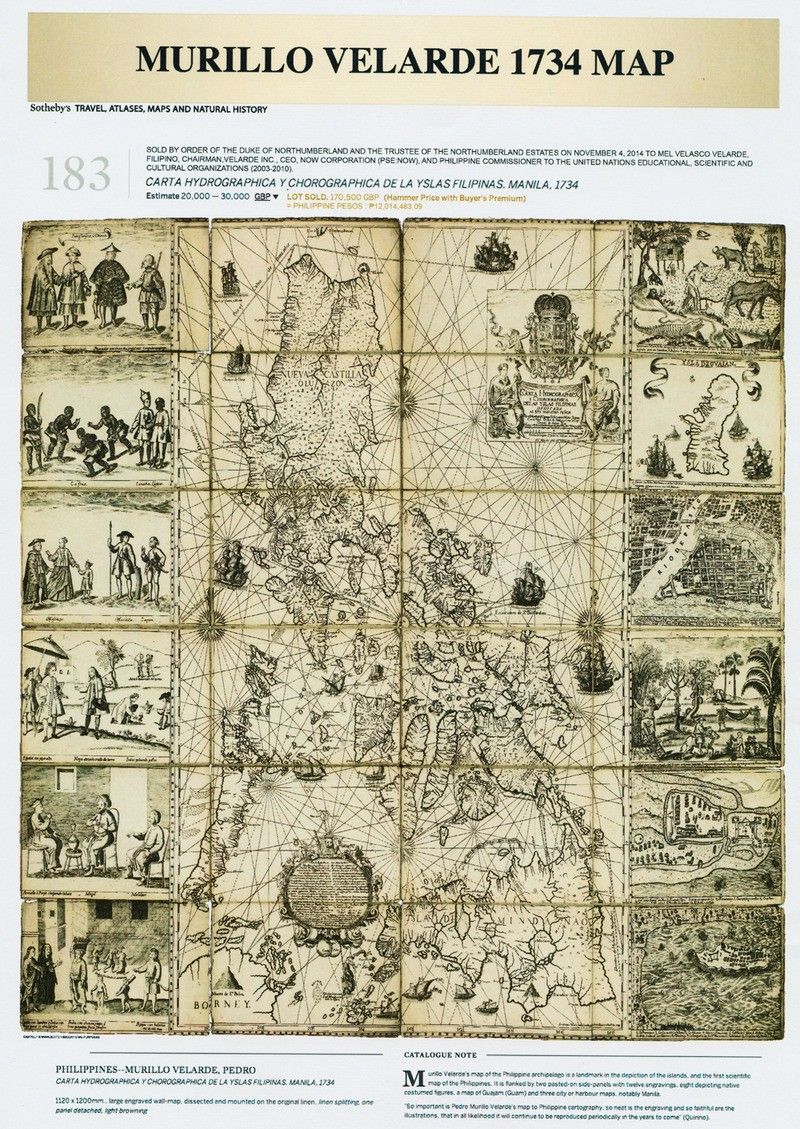MANILA, Philippines — A nearly three-century-old map that helped the Philippines win its territorial dispute against China was formally received at the Malacañang Palace on Friday, December 6ace291, with President Ferdinand Marcos Jr. hailing it as a historic document that has "defined the Philippines."
The Murillo Velarde map of 1734 — officially titled "Carta Hydro-graphica y Choro-graphica de las Yslas Filipinas" — was a crucial piece of evidence in the Philippines' victory at the United Nations tribunal over the South China Sea dispute in 2016.
IT entrepreneur Mel Velasco Velarde, who acquired the map at a Sotheby's London auction in 2014, presented the original map during the Palace ceremony on Friday.
Marcos described the map as a "defining testament to the deep historical roots of our very identity as a nation."
"What began as a map of the Philippines during the Spanish era became a formidable piece of evidence in our assertion of our rightful entitlements in the complex legal arena of the 21st century," Marcos said. "It reminds us that history, when meticulously preserved, wields immense power to inform and to uphold the truth."
 A copy of the 1734 Murillo Velarde Map (in picture) was received by the Philippines' Army Museum in 2017.
Philippine Army
A copy of the 1734 Murillo Velarde Map (in picture) was received by the Philippines' Army Museum in 2017.
Philippine Army
The historic document was among more than 270 maps submitted to the Arbitral Tribunal during the Philippines' case against China under the United Nations Convention on the Law of the Sea (UNCLOS). It provided critical evidence of the Philippines' historical jurisdiction over Scarborough Shoal, marked as Panacot Shoal in the map, and the Spratly Islands, identified as Los Bajos de Paragua.
Known as the "mother of all Philippine maps," the map's journey home began when Velarde purchased it for P12 million at the urging of former Supreme Court Associate Justice Antonio Carpio, who was also present at Friday's ceremony. Velarde later donated the map to the National Museum in 2017.
Created by Jesuit cartographer Pedro Murillo Velarde in collaboration with Filipino artists Francisco Suarez and Nicolás de la Cruz Bagay, the map captures more than just geographical boundaries.
"It features details that go far beyond rivers and coastlines," Marcos noted. "There are depictions of indigenous Filipinos, mestizos, and Sangleyes; bustling ports and verdant rural landscapes as well."
The president praised Velarde's acquisition of the map, saying he acted "not as a private collector but as a steward for the nation."
Through Velarde's generosity, Marcos added, "this invaluable piece of history was not locked away in obscurity but was restored to its rightful owners: to us, the Filipino people."
Marcos called on Filipinos to draw inspiration from the map in asserting and protecting the country's sovereignty.
"The Murillo Velarde Map is an important gift from our past that defined the country’s territory, and it is now our duty to carry its legacy forward to future generations," Marcos said.
The 2016 Arbitral Award clarified countries' maritime entitlements under UNCLOS and reinforced the Philippines' rights over resources within its 200-nautical mile exclusive economic zone and continental shelf.
The tribunal ruled that China had no evidence of historic exclusive control over the waters or resources of the South China Sea. ace291
